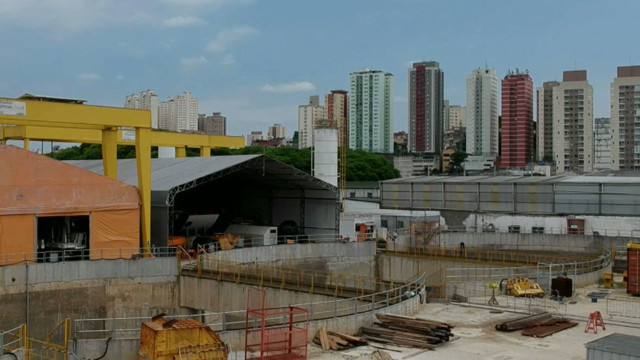Dozens of politicians and big companies have been entangled incorruption allegations in Brazil as police and prosecutors look into suspect dealings. The probes have been sending shockwaves in Brazil – and are still going. CGTN’s Paulo Cabral reports.
Just recently, a Chinese-led consortium announced its interest in completing line six of São Paulo’s Metro System. In 2015, construction began on the project but last year, it was stopped after the original contractors got entangled in corruption allegations.
The group includes the country’s biggest construction company – Odebrecht – whose former CEO, Marcelo Odebrecht, has been in jail for over two years – serving a 19- year sentence for paying bribes.
Over the last few years, corruption probes in Brazil, especially the landmark Car Wash probe into illegal dealings involving oil giant Petrobras – have had deep impacts in the country’s business community, political establishment and the economy. As investigations continue, it’s unclear what else may be revealed.
Right now, the congress is looking into charges against president Michel Temer despite Brazil’s Chamber of Deputies report to the lower house of parliament that recommended rejecting the charges of obstruction.
Former president, Lula da Silva, who was sentenced to nine years and six months over allegations of corruption linked to the Car Wash probe, is leading in the polls in the upcoming 2018 Presidential elections.
There is widespread perception in Brazil that politicians have been trying to slow down investigations.
But one analyst says their capacity to do so is limited because of the relative independence of federal police, prosecutors and controllers.
“We can have a will of the government in terms of stopping those investigations but on the other side you have the force from the internal corporations in charge of the investigation that can try to prevent these actions. It’s a track that we have pursued and not sure we can reverse this path of continuing the investigations. The population would not allow it,” Sandro Cabral, Strategy Expert with INSPER said.
As investigations progress, there’s also concern with the impacts on the economy, as some of the country’s biggest companies have been hit.
This professor says the corruption probes are one reason behind a drop in the level of investment in the country.
“Without the Car Wash, we would have better prospects in the short term to grow but in the long-term we would be stuck in problems related to corruption. The best scenario we would get rid of corruption and Brazil would develop a new judicial system and new institutions that would foster investment,” Leonardo Weller, Economy Professor, Getulio Vargas Foundation said.
Some Brazilians seem to believe battling corruption is paramount for the country’s long-term development… even if it increases Brazil’s hardships for now.
 CGTN America
CGTN America

